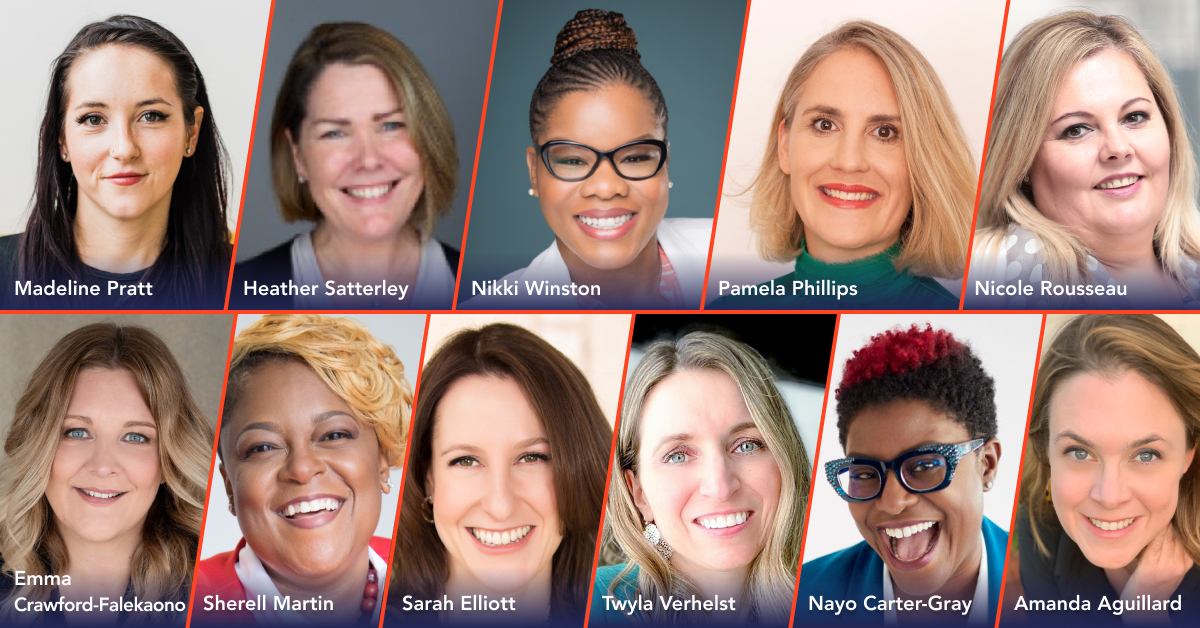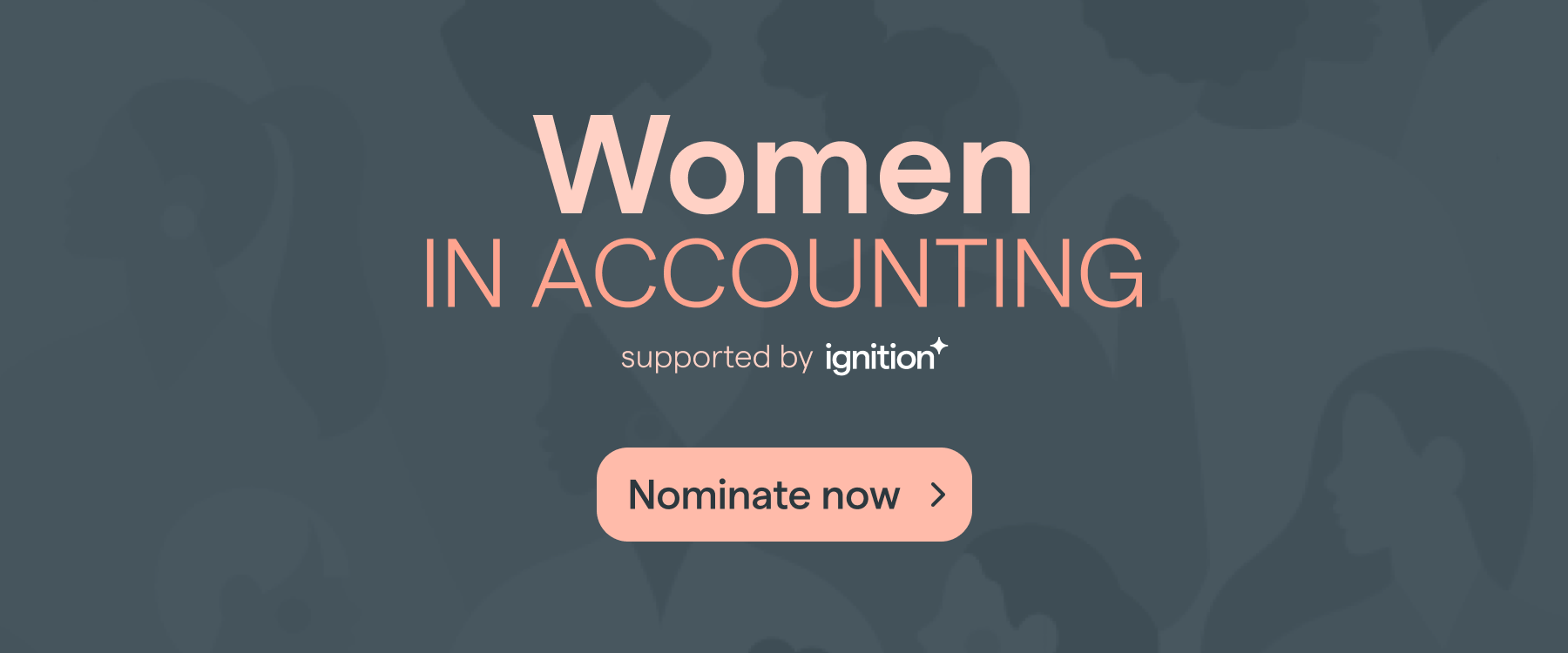Making the workplace work for women

The world is changing, but is the workplace keeping up with this pace of change? While the number of female CEOs in the Fortune 500 has reached a record high, the vast majority of companies are still failing to understand the problems that working women face.
Earlier this year, we assembled an expert #WomeninAccounting panel to get to the heart of the issue. Madeline Pratt, founder at Fearless Foundry, hosted the panel discussion joined by Nayo Carter-Gray, owner and founder at 1st Step Accounting, Nicole Rousseau, Co-founder and Head of PKF Ignite, Amanda Aguillard, principal of Aguillard Accounting, Sarah Elliott, Co-founder and principal of Intend2Lead, and Heather Slatterly, Founder of Satterley Business Solutions.
They were also joined by Emma Crawford Falekaono, Head of Europe, Middle East and Africa at Ignition, Sherrell Martin of Nitram Financial Solutions, Nikki Winston, Founder of the Winston CPA Group, Twyla Verhelst, Head of the accounting channel at FreshBooks, and Pam Phillips, Founder of de Jong Phillips.
We discussed possible structural changes that could make the workplace more equitable for women, what allies can do to support their female co-workers, how women can support each other, and top tips for companies to help their female employees manage stress and avoid burnout.
How can innovative policies and structural changes support working women?
Pamela began by highlighting the importance of having an honest conversation. “Take the gender pay gap. If employers can actively share the data it would allow people to connect with it. It would certainly bring up difficult conversations, but it will get people engaged.”
Progress remains slow. After all, a white woman earns 82 cents for every dollar a man makes, while this figure is even lower for women of color. To make matters worse, women by and large assume the role of familial caretaker — meaning they essentially take on two full-time jobs at once.
Policies needed to be implemented at the federal level to solve this issue. Consider maternity leave, for example. As Nikki pointed out, “42 days of maternity leave is not a lot of time — you may be on the brink of being physically ready to get back to work, but you may not be mentally prepared.”
Employers need to support women throughout the whole journey, including the pre-birth phase. As every mother knows, the first trimester is the hardest — but that’s when you get the least support. While individual employers might be doing their bit to counteract these pre-existing gender imbalances, only wholesale structural changes will eradicate the issue once and for all.
What can allies do to make the workplace more equitable for women?
While today’s workplace is a far cry to its predecessors, there’s still a long way to go. Women are routinely excluded from certain activities like socializing. As Amanda, a working mom, stated: “We can’t go for after-work drinks, and we can’t spend Saturdays on the golf course.”
Of course, this isn’t about getting a round of golf — or a round of drinks — in. The issue here is that these events play a crucial role in fostering workplace relationships. In turn, this leads to career advancement opportunities, being trusted with key decision-making, and more.
Even if you don’t have kids, women still assume a disproportionate share of the housework. This leaves them with less time, energy, and frankly, desire to commit to work-related activities outside of work hours.
Women still spend two to ten times more hours on unpaid care work than men — even when both partners work. This amounts to an average of 4.5 hours of unpaid labor per day.
This often goes unnoticed. However, as Nikki said, COVID has shed light on how much work women do: keeping the kids fed, the clothes ironed, working a full-time job, and still trying to keep it all together.
It’s up to men to assume responsibility in these areas. According to Emma, however, things are moving in the right direction. “A lot of the professional women I know are the main breadwinner. I think a lot of guys are stepping up to the mark at the moment. When they don’t, it’s often not through intent — it’s just a lack of open communication.”
It’s not enough to be an ally in the shadows. Men need to step up and do their bit – both within the workplace as well as at home.
How can we help women who are just beginning their careers?
The most important thing is to lead by example. When Emma announced the news that she was pregnant, she discussed everything with her team — the pain of pregnancy loss to the challenges of giving birth. “I was blown away by the response. All my team, men and women, told me that they felt empowered — it showed them that they could be their authentic selves.”
The panel all agreed with this point. Nicole talked about the need to teach young women about imposter syndrome, a topic that features regularly in our discussions: “You have to be confident and believe in yourself. You’ve earned your position. Be less apologetic for who you are.”
Twyla couldn’t agree more, and imparted some key advice for young women. “Whenever I’m negotiating, I always remind myself that I’m not just doing this for me, but for all of us.”
Mentoring is integral too. When Nayo became a mother at 14, people used to tell her that her life was over. “So now I tell the young women that I encounter to never let anyone tell you that you can’t do something. The only person stopping you is you.”
Books that changed our lives
As hard as we tried, our panel was unable to provide all the answers. Heck, we’re only human. That said, we have shared some of our favorite books — books that will have a transformative impact on both your professional and personal lives.
The Soul of Money — Lynne Twist
It’s Quiet: The Power of Introverts in a World That Can’t Stop Talking — Susan Cain
When Breath Becomes Air — Paul Kalanithi
The Coaching Habit: Say Less, Ask More & Change the Way You Lead Forever — Nayo Carter-Gray
Leading on the Edge — Rachel Robertson
Ask for More: 10 Questions to Negotiate Anything — Alexander Carter
More than a Woman — Caitlin Moran
Wait — did we just start a book club?
Together, we can build a better future
Thanks to our fantastic panelists for joining us to discuss this burning issue. It’s been amazing to see how the Ignition community has brought women in accounting together over the past 6 years.
Women make up 61% of the accounting industry. We can be a leading light in making the workplace an equitable and flexible place to be.
